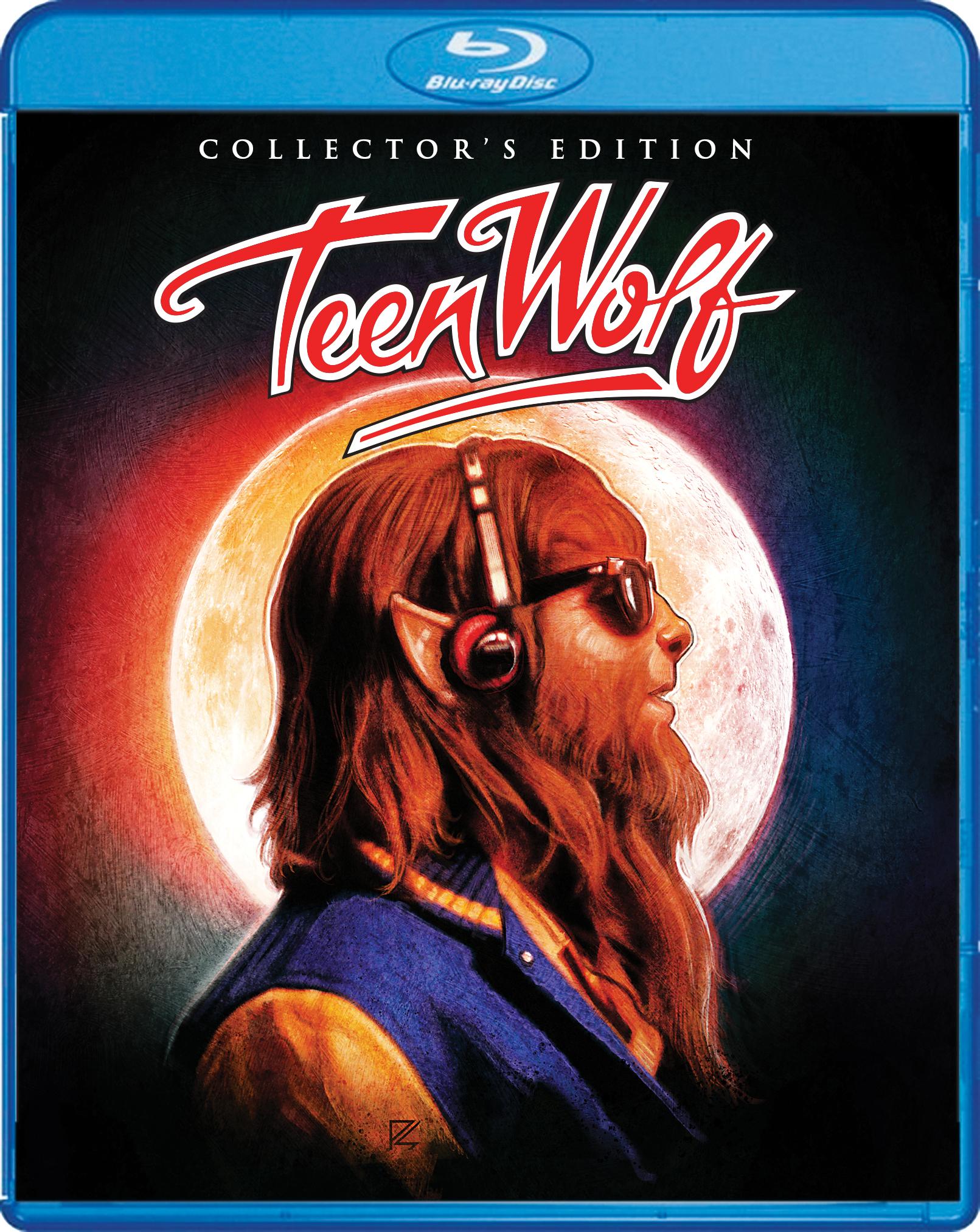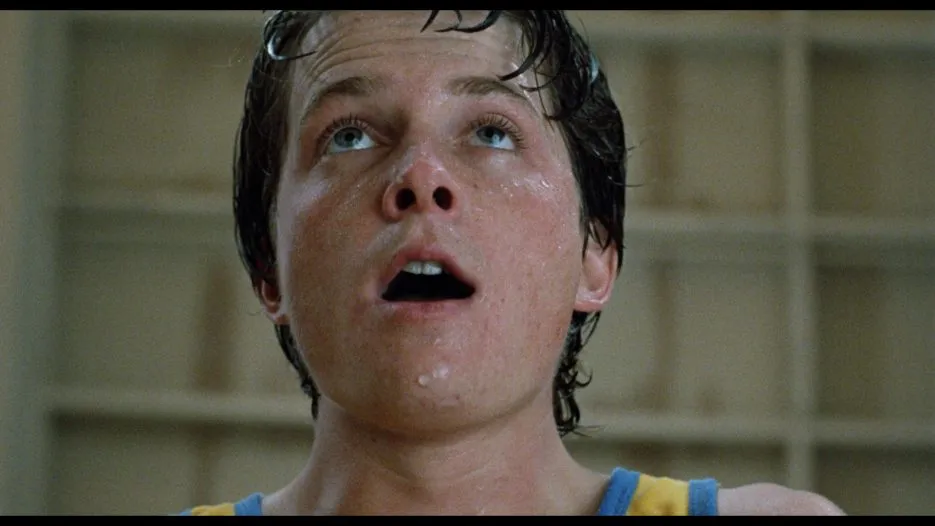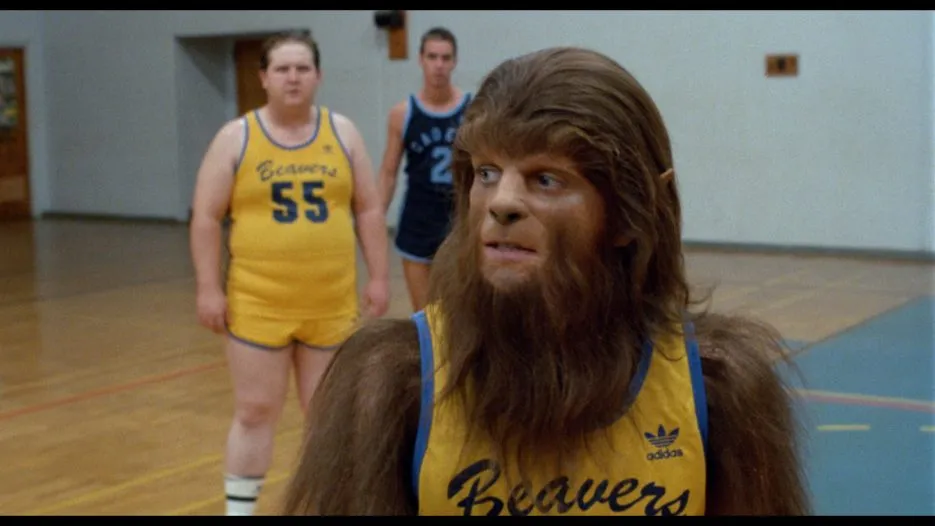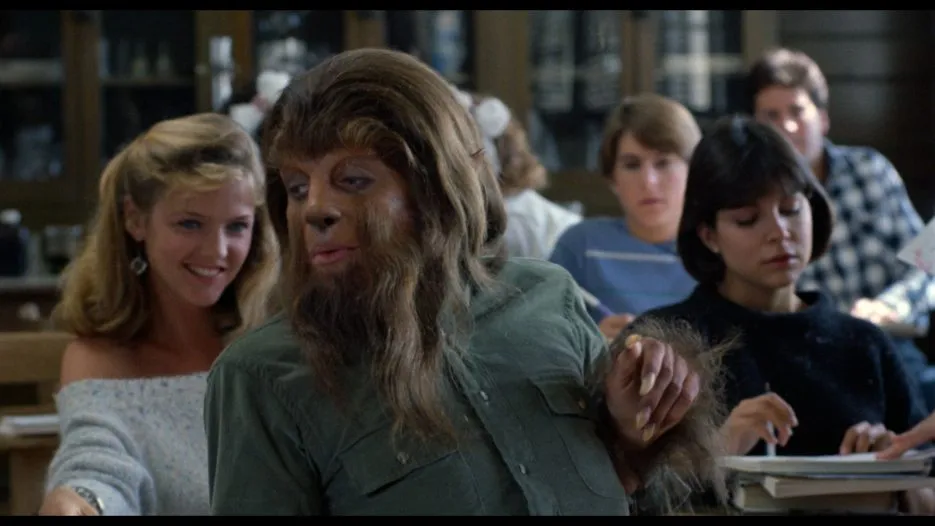Teen Wolf review
Rod Daniel struck it big in 1985 with his film directorial debut Teen Wolf, a comedy about an unpopular basketball player trying to navigate the muddy waters of life and love in high school while also trying to figure out how to control his werewolf transformations. The time period was rife with teen comedies and it helped to have Michael J. Fox as the hairy protagonist: a popular teen in sitcoms and other television shows, he was the perfect fit for the nerdy and boyish Scott Howard, and his career was blossoming especially with his role in the popular Back to the Future. Teen Wolf is certainly an artifact of its time – see its dated ’80s soundtrack, composed for the film by Douglas Brayfield – but its nostalgic offerings have since become influential parts of pop culture, both for horror and for situational comedies that need a premise for a special Halloween episode (Boy Meets World, for example).
The film follows Scott after he begins to experience his teenage “change” – he’s getting hairier, feeling a bit more aggressive, and definitely more hormonal than he used to be. He’s on a failing basketball team, he’s not really part of the popular crowd, and he’s got an unrequited love interest in Pamela (Lorie Griffin), a hot chick with a killer boyfriend. But his werewolf abilities accidentally make him more popular than the regular Scott, and it begins to get in the way of normal life, especially with his best girl pal Boof (Susan Ursitti).
Teen Wolf plays itself pretty straight for the most part, setting up the quaint high school lifestyle for Scott and introducing the issues he faces as a normal teen. But the werewolf aspect creeps up quickly – his hands grow tufts of hair, his anger issues allow him to buy a keg of beer without an ID – and Daniel optimizes his time dealing with two very different problems for Scott.
Ultimately, though, the actual werewolf aspect is just a metaphor for growing up and figuring out the different facets of one’s personality, and the film’s plot doesn’t spend much time exploring the nuances of being a human wolf. Instead, Daniels shows the changes that Scott goes through in school as he becomes more popular in wolf form than he ever was as himself. He finally gets the girl, but only because she likes the animal within him rather than him as a person; he ostracizes himself from Boof, who loves him for who he is, and feels like he has to become the wolf to manage the public’s expectations. It’s a good moral about finding yourself and liking who that person is rather than trying to be something that you’re not, and Teen Wolf finds a lot of thematic ground in its dialogues about accepting people – like Chubs (Mark Holton), for example, or even a less acceptable conversation about being a “fag.”
But the most interesting elements of Teen Wolf, at least contemporaneously, are ironically also the most nostalgic. The film is unmistakably a product of the ’80s, from the hair to the music to the wild dance parties, and things that probably were only slightly funny at the time are now much more humorous because of their ridiculousness. Scott’s werewolf basketball scenes are outlandish set against a synth backdrop, as are the TV sitcom stings that signal a depressing realization. Teen Wolf is a particularly perfect example of retroism, and it has all of the elements that define the style.
The first wolf morph effect is another highlight, a surprisingly effective use of editing techniques and practical effects to make Teen Wolf a highlight of werewolf films, even if that conceit isn’t the most important aspect of the film. Fans of horror films might miss some of the classic tropes, but the facial transformation is certainly welcome here.
Teen Wolf is a fun film with some obviously dated references, but the 90-minute coming-of-age tale makes good use of its themes even if the werewolf element is relatively underused. Stand-outs include Fox and Ursitti as well as Jerry Levine as Stiles and Jay Tarses as Coach Finstock; the soundtrack is also a treat, although not in the serious sense. Teen Wolf is more a nostalgic look-back than a truly memorable film, but its place is warranted as both a teen comedy and a horror-inspired flick.
Blu-Ray review
Scream Factory has released Teen Wolf on Blu-Ray as part of their Collector’s Edition series. This gets new artwork and reversible original cover art along with a nice slipcover (as long as you order early). The film gets a new 2k scan courtesy of Scream Factory that looks very good; there’s some healthy grain presence but overall skin tones look natural, color saturation is good, and even darker shots like Stiles riding on the van at night have great clarity. Overall there’s nothing to complain about with the picture quality, and even despite the many Blu-Ray releases that Teen Wolf has had over the years, fans will certainly enjoy the treatment Scream Factory has given the film.
Audio is a DTS-HD Master Audio 2.0 track that sounds crisp and clean, with a lot of bass emphasis with the ’80s soundtrack. This film could have definitely used a 5.1 track for some more punch, but again, there’s nothing here to complain about. There are also English subtitles included.
The real treat for the disc, though, is also what looks to be on paper the weakest aspect of the release: its extra features. While the listing for the specials seems to indicate there’s only one featurette, the truth is that the making-of extra on the disc is comprised of multiple parts and interviews and runs longer than the film itself at 2 hours and 20 minutes. The composition runs the gamut from pre-production through to the film’s release, interviewing many cast and crew members (besides Fox himself); and thankfully, Scream Factory has allowed viewers to watch it as a full documentary or in its requisite parts, which is a great way to make it easy for people to watch. Also included are theatrical trailer and still galleries.
Fans of Teen Wolf will absolutely want to pick up Scream Factory’s Blu-Ray, if not because of the picture quality then certainly because of the new documentary included on the release.





